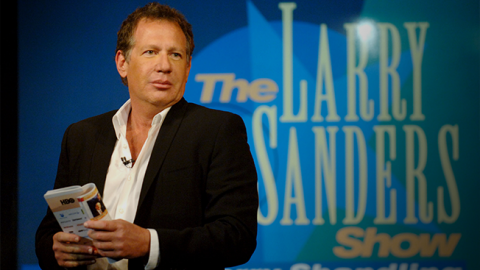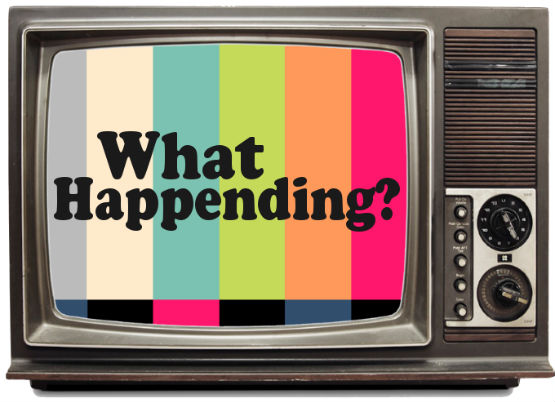How Garry Shandling (and Larry Sanders) Changed TV

Long before Tony Soprano, Carrie Bradshaw or the fictional version of Larry David, HBO had Larry Sanders.
As the hilarious but self-centered late-night talk show host, Larry Sanders, Garry Shandling provided HBO with its first great series, The Larry Sanders Show, and set HBO on its top-shelf series path, which eventually led to shows like The Sopranos, Sex and the City, Deadwood and The Wire.
Shandling, who died on Thursday at 66 following a "medical emergency" at his L.A. home, single-handedly turned cable series from also-rans into programs that were every bit as good as (and in the case of Larry Sanders, far superior to) anything else on TV. Before him, cable shows had to content themselves with vying for CableACE Awards. But by the end of Larry Sanders' run, cable series were going home with Emmys.
Shandling's breakthrough as a stand-up comedian came in 1981 with his appearance on The Tonight Show Starring Johnny Carson. He later became a frequent guest host on the show and at one time was considered the heir to the Tonight Show throne. But Shandling was to make an even more significant impact on showbiz.
It started with It's Garry Shandling's Show, the sitcom Shandling created and starred in for Showtime. Debuting in 1986, the show ran for four seasons ending in 1990. Shandling enjoyed sending up sitcom conventions and frequently "broke the fourth wall" to talk to his studio audience. Even the show's theme song was self-aware:
In addition to being one of the earliest premium cable series, It's Garry Shandling's Show became the first to run simultaneously on two networks: Showtime and Fox. (The then fledging fourth network ran edited versions of the series from 1988 to 1990.)
While It's Garry Shandling's Show was a joy, Shandling saved his true genius for The Larry Sanders Show, which debuted on HBO in 1992. One of the greatest shows of all time, its peerless cast included Rip Torn (as the show's dogged producer, Artie) and Jeffrey Tambor (as sidekick Hank "Hey Now" Kingsley) as well as Sarah Silverman, Janeane Garofalo, Penny Johnson Jerald and Jeremy Piven.
Larry Sanders pioneered the concept of stars sending up their "real" off-screen personas, with everyone from David Duchovny, Ellen DeGeneres, Jim Carrey and Carol Burnett gamely poking fun at themselves. Every showbiz satire that followed—including The Comeback, Curb Your Enthusiasm and Entourage—owes a debt of gratitude to Larry Sanders.
The show ran for six glorious seasons, picking up 56 Emmy nominations along the way and winning three, including a writing Emmy for Shandling, who co-wrote the May 1998 series finale that still ranks among the best series finales of all time.
During Larry Sanders' run, NBC pursued Shandling to be a real-life host instead of a fictional one, asking him to step in as Late Show host in 1993 after David Letterman departed for CBS. But Shandling turned the offer down.
"I'm not good at doing anything every night, let alone with people watching," Shandling told me in 2007. "I really like hosting a talk show, but doing it every night wouldn't allow me to explore other creative avenues, and I didn't want to limit myself. I also don't know how I would do having to worry about ratings."
Seven months after Sanders ended, HBO viewers met another one-of-a-kind character, James Gandolfini's Tony Soprano. The Sopranos, and Sex and the City, which hit around the same time, launched HBO into the stratosphere.
Shandling never enjoyed the same level of success in films as he did on TV. He appeared in What Planet Are You From? and Town & Country. More recently, he played a corrupt senator—who turned out to be part of the evil Hydra organization—in a pair of Marvel films, Iron Man 2 and Captain America: The Winter Soldier.
But no matter: Larry Sanders is a TV creation for the ages. The show and the character are members of the TV Pantheon. Shandling made HBO and by extension, AMC, FX, Showtime and now Netflix the networks they are today. He will be sorely missed but never forgotten.
By Jason Lynch March 24, 2016





